
Cuisine
Nigerian cuisine
Nigerian cuisine is characterized by its use of spices, herbs, and vegetables. Common ingredients include yams, cassava, plantains, beans, and rice. Meats such as chicken, beef, and goat are also commonly used, as well as fish and seafood. Spices such as ginger, garlic, and chili peppers are used to add flavor to dishes.
Typical ingredients
Yams, Cassava, Plantains, Beans, Rice, Chicken, Beef, Goat, Fish, Seafood, Ginger, Garlic, Chili peppers
Presentation and garnishing
Dishes are often presented in large communal bowls, with diners using their hands to eat. Garnishes such as fresh herbs and sliced vegetables are used to add color and flavor to dishes.
Jollof rice is a popular Nigerian dish made with rice, tomatoes, onions, and spices.
More cuisines from this region...
Ghanaian cuisine, Ivorian cuisine, Senegalese cuisine, Malian cuisine, Benin cuisine, Burkinabé cuisine, Guinean cuisine, Liberian cuisine, Sierra Leone cuisine, Togolese cuisine
History
Nigerian cuisine has been influenced by many different cultures, including those of the Yoruba, Igbo, and Hausa people. The cuisine has also been influenced by neighboring countries such as Ghana and Cameroon.
Cultural significance
Food is an important part of Nigerian culture, with communal meals being a common practice. Many traditional dishes are served on special occasions such as weddings and religious festivals.
Health benefits and considerations
Nigerian cuisine is generally healthy, with a focus on whole grains, vegetables, and lean meats. However, some dishes may be high in fat or salt.
Nigerian cuisine dishes Browse all »

Nigerian Fried Rice
Nigerian Fried Rice is a popular West African dish that is made with rice, vegetables, and spices.

Tuwo shinkafa
Rice Flour Porridge
Tuwo shinkafa is a Nigerian dish made with rice flour. It is a staple food in many parts of Nigeria and is often served with soups or stews.
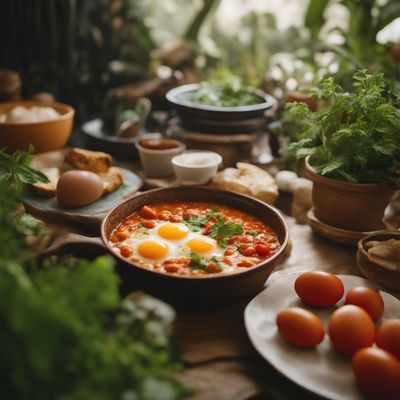
Garden Egg Stew
Garden Egg Stew is a Nigerian dish made with garden eggs and tomatoes.

Torta Osimhen
Osimhen Cake
Torta Osimhen is a Nigerian cake that is made with coconut and condensed milk. It is a sweet and moist cake that is perfect for dessert or as a snack.

Guinness Bottle Chicken Stew
Guinness bottle chicken stew
Guinness Bottle Chicken Stew is a hearty and flavorful stew that is perfect for a cold winter day. It is made with boneless chicken thighs, vegetables, and a rich Guinness beer sauce.
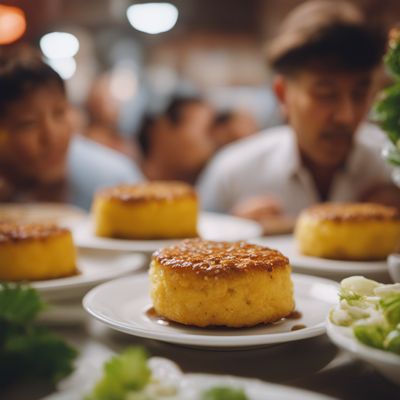
Moin moin
Steamed Bean Cakes
Moin moin is a traditional Nigerian dish made with black-eyed peas. It is a popular dish in West Africa and is often served as a side or snack.

Bassi-salté
Nigerian Fish Stew
Bassi-salté is a traditional dish from Guinea that is made with fish, vegetables, and rice. It is a flavorful and nutritious meal that is perfect for any occasion.
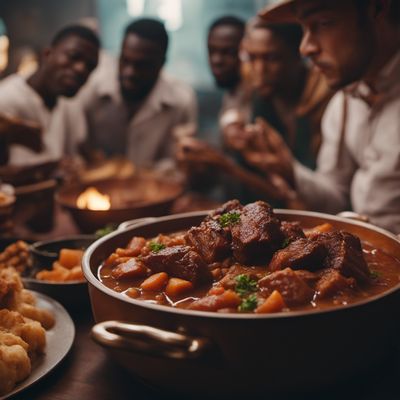
Nkwobi
Assorted meat stew
Nkwobi is a traditional Nigerian dish made with cow foot and a spicy sauce. It is a popular dish in the Igbo tribe of Nigeria and is often served at special occasions.
Nigerian cuisine recipes Browse all »

Funkaso with Spiced Tomato Sauce
Savory Nigerian Funkaso: A Delightful Blend of Flavors
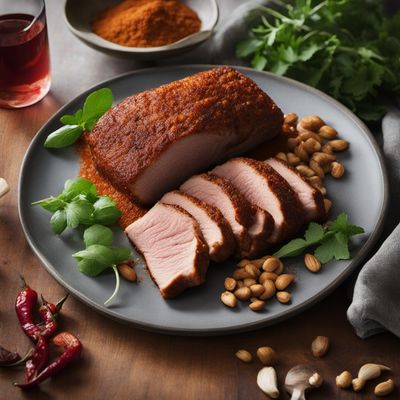
Nigerian-style Spiced Roast Pork
Suya-inspired Roast Pork: A Nigerian Twist on Porchetta
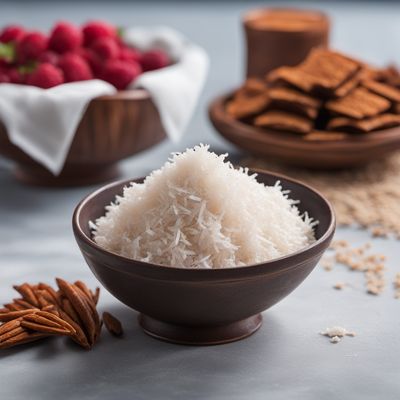
Toto - Nigerian Coconut Candy
Coconut Delights: A Sweet Taste of Nigeria
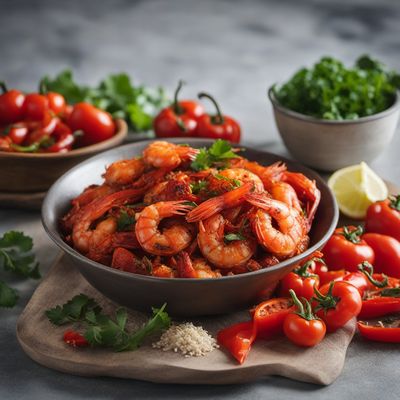
Peppered Shrimps with a Nigerian Twist
Spicy Delight: Nigerian Peppered Shrimps

Nigerian Cricket Bread
Savory Delight: Nigerian Cricket Bread with a Twist
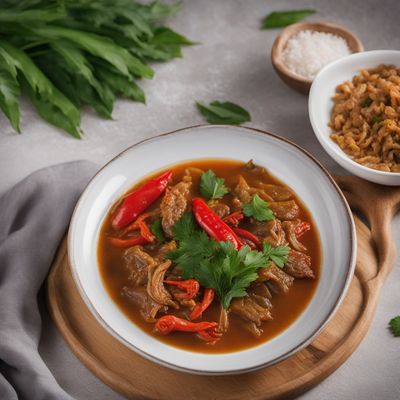
Edikaikong Soup
Savory Delight: Edikaikong Soup - A Taste of Nigerian Tradition
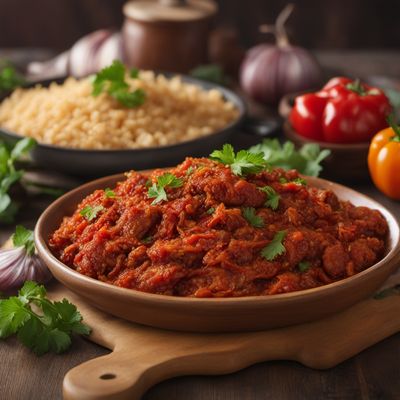
Djerma Delight
Savory Nigerian Groundnut Stew

Grilled Snails with Spicy Tomato Sauce
Savory Delight: Grilled Snails in Nigerian Spicy Tomato Sauce

Shuku Shuku - Nigerian Coconut Balls
Coconut Delights: Irresistible Nigerian Shuku Shuku Recipe

Batar da’an - Nigerian Spicy Chicken Stew
Savory Delight: Nigerian Spicy Chicken Stew
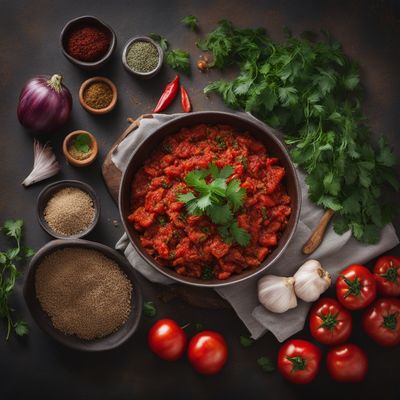
Ziva - Nigerian Style
Spicy Nigerian Ziva Delight
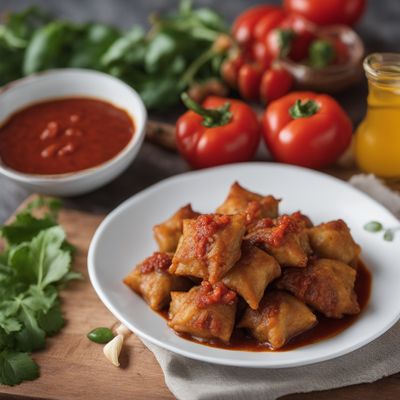
Nigerian-style Stuffed Dumplings
Savory Delights: Nigerian-inspired Stuffed Dumplings